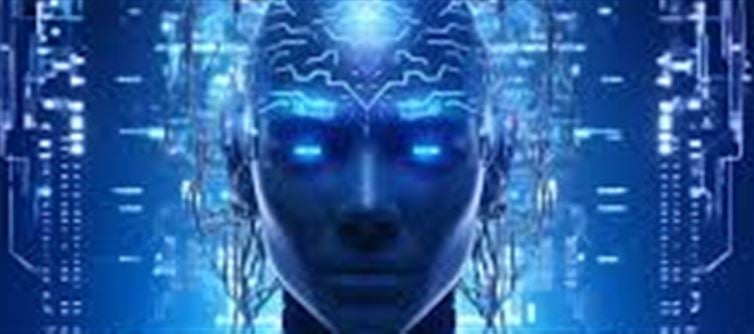
As we enter 2025, the tech industry continues to evolve at a rapid pace, and Artificial Intelligence (AI) and Data Science are two of the most sought-after career paths for young professionals. If you're considering pursuing a BTech in one of these fields, you're likely wondering which path will offer you the best career opportunities, growth, and impact on the future.
Both AI and Data Science are highly lucrative and have seen exponential growth in recent years. But what exactly sets them apart? Here’s a detailed comparison to help you make an informed decision.
1. What Is BTech in Artificial Intelligence (AI)?
A BTech in AI is focused on the development of machines that can simulate human intelligence. This branch of technology includes creating systems that can learn from data, improve over time, and make decisions autonomously.
Core Subjects in AI:
· Machine Learning (ML) and Deep Learning
· Natural language Processing (NLP)
· Robotics and Autonomous Systems
· Computer Vision
· AI Ethics and Governance
· Data Structures and Algorithms
Key Skills Acquired:
· Expertise in algorithms, statistical models, and optimization.
· Proficiency in programming languages like Python, R, and Java.
· Understanding of how AI systems are built and trained to function in real-world scenarios.
Career Opportunities in AI:
· AI Engineer
· Machine Learning Engineer
· Data Scientist (with a focus on AI)
· Robotics Engineer
· AI Research Scientist
· AI Product Manager
Future Scope of AI (2025 and Beyond):
AI is shaping the future of industries such as healthcare, automotive, finance, education, and more. By 2025, AI is expected to be deeply integrated into everyday applications, from smart assistants to autonomous vehicles.
2. What Is BTech in Data Science?
A BTech in Data Science revolves around analyzing large sets of data to derive insights, patterns, and trends. Data scientists use their knowledge of statistics, machine learning, and programming to extract actionable intelligence from structured and unstructured data.
Core Subjects in Data Science:
· Data Analysis and Visualization
· Statistical Inference
· Big Data Technologies
· Machine Learning Algorithms
· Data Mining and Predictive Analytics
· Data Engineering
Key Skills Acquired:
· Proficiency in data wrangling, statistical analysis, and data cleaning.
· Expertise in tools like SQL, Hadoop, Spark, and TensorFlow.
· Knowledge of business intelligence tools and how to interpret data to inform business decisions.
Career Opportunities in Data Science:
· Data Scientist
· Data Analyst
· Business Intelligence Analyst
· Data Engineer
· Data Architect
· Quantitative Analyst
Future Scope of Data Science (2025 and Beyond):
Data Science is at the forefront of decision-making across industries. With the explosion of data generated by businesses, governments, and individuals, the demand for skilled data scientists is set to increase exponentially in the coming years.
3. Key Differences Between AI and Data Science
Focus Area:
· AI is about building intelligent systems that can simulate human cognition and behavior.
· Data Science is about analyzing and extracting insights from data to help decision-making.
Skills Required:
· AI requires a deeper understanding of algorithms, mathematics, and model building.
· Data Science emphasizes data manipulation, visualization, and understanding statistical patterns.
Applications:
· AI is more focused on creating systems that can think, adapt, and respond autonomously (e.g., chatbots, AI-driven diagnostics).
· Data Science helps businesses and organizations make data-driven decisions (e.g., predicting trends, improving marketing strategies).
Job Market:
· Both fields have a high demand, but AI professionals are often needed to work on cutting-edge technologies, while Data Scientists are needed across a broader range of industries for business decision-making.
4. Which Path to Choose in 2025?
When deciding between a BTech in AI or Data Science, here are a few factors to consider:
1. Interest in Algorithms vs Data Analysis
· Choose AI if you're more interested in building intelligent systems, working with advanced algorithms, and developing cutting-edge technologies.
· Opt for Data Science if you're more inclined toward data analysis, predictive modeling, and making sense of large data sets to guide business decisions.
2. Career Opportunities
· AI is ideal for those interested in building products or solutions related to autonomous systems, robotics, or natural language processing.
· Data Science opens doors across industries like finance, marketing, retail, and healthcare, offering a broader range of job opportunities.
3. Long-Term Vision
· AI offers exciting opportunities in emerging technologies like autonomous vehicles, AI-driven healthcare solutions, and smart cities.
· Data Science has a more mature role but is equally crucial in enabling businesses to make data-backed decisions and optimize processes.
5. Conclusion: Which One is Better for You?
Both AI and Data Science are fantastic fields with promising career prospects. However, your decision depends on where your interest and aptitude lie:
· If you’re excited about building intelligent systems, exploring robotics, or working on cutting-edge technologies, a BTech in AI could be your ideal choice.
· If you enjoy working with data, finding patterns, and using data to solve real-world problems, a BTech in Data Science will give you the skills to thrive in diverse industries.
The good news is that both fields will offer you excellent job prospects, high salaries, and the chance to be at the forefront of the technological revolution in india and globally. So, consider your strengths, career aspirations, and personal interests when making the decision!
Disclaimer:
The views and opinions expressed in this article are those of the author and do not necessarily reflect the official policy or position of any agency, organization, employer, or company. All information provided is for general informational purposes only. While every effort has been made to ensure accuracy, we make no representations or warranties of any kind, express or implied, about the completeness, reliability, or suitability of the information contained herein. Readers are advised to verify facts and seek professional advice where necessary. Any reliance placed on such information is strictly at the reader’s own risk..jpg)




 click and follow Indiaherald WhatsApp channel
click and follow Indiaherald WhatsApp channel